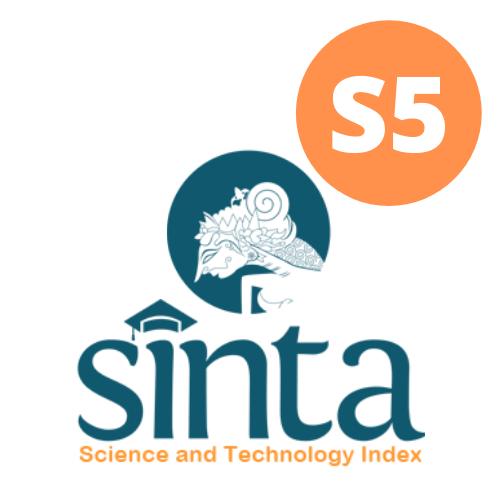Retrieval Augment Generation (RAG) Governance Architecture for Enterprise Information Systems
Abstract
Abstract: Retrieval-Augmented Generation (RAG) has emerged as one of the most advanced approaches in leveraging large language models (LLMs) by combining them with knowledge-based retrieval mechanisms. Unlike pure LLMs that solely rely on pre-trained data, RAG enables systems to reference up-to-date and relevant information sources, thereby producing responses that are more accurate and contextually appropriate. This study proposes a governance-ready RAG architecture specifically designed for enterprise information systems, with a focus on improving answer accuracy, auditability, and regulatory compliance. In a case study within the domain of corporate document management, the proposed architecture demonstrates its ability to significantly enhance both retrieval performance and the quality of generated responses compared to baseline LLMs. The integration of data governance modules, audit trails, and policy layers ensures that the system remains transparent and accountable, particularly in enterprise environments that demand clear auditability. Furthermore, the inclusion of policy layers guarantees that the system operates in alignment with both corporate and national regulatory standards. Evaluation results indicate a substantial improvement, with retrieval precision increasing by up to 23% compared to the baseline. These findings highlight that governance-ready RAG can serve as a critical foundation for developing enterprise information systems that are not only smarter and more efficient, but also secure and regulation-compliant [1][5].
Keywords: Retrieval-Augmented Generation, Information Systems, Data Governance, Auditability, Enterprise AI.
References
[2] A. Asai, M. Yasunaga, N. Kasai, M. Seo, and D. Radev, “Self-RAG: Learning to Retrieve, Generate, and Critique through Self-Reflection,” arXiv:2310.11511, 2023.
[3] Z. Jiang, X. Ma, and W. Chen, “LongRAG: Enhancing Retrieval-Augmented Generation with Long-context LLMs,” arXiv:2406.15319, 2024.
[4] S. Es, J. James, L. Espinosa-Anke, and S. Schockaert, “RAGAS: Automated Evaluation of Retrieval-Augmented Generation,” arXiv:2309.15217, 2023.
[5] Y. Gu, H. Touvron, dkk., “Evaluation of Retrieval-Augmented Generation: A Survey,” arXiv:2405.07437, 2024.
[6] G. Izacard, P. Lewis, dkk., “Atlas: Few-shot Learning with Retrieval-Augmented Language Models,” J. Mach. Learn. Res., vol. 24, no. 233, 2023.
[7] H. Klesel and M. Matzner, “Retrieval-Augmented Generation in Information Systems: Opportunities and Challenges,” Bus. Inf. Syst. Eng., 2025.
[8] Y. Gao, Y. Li, and J. Xu, “Enterprise Applications of RAG: Challenges and Best Practices,” IEEE Trans. Knowl. Data Eng., 2023.
[9] P. Lewis, E. Perez, A. Piktus, dkk., “Retrieval-Augmented Generation for Knowledge-Intensive NLP Tasks,” NeurIPS, 2020.
[10] J. L. Boyd-Graber, “Augmenting LLMs with Knowledge Retrieval: Trends and Challenges,” AI Mag., 2022.
[11] A. Izacard, F. Petroni, dkk., “Towards Efficient RAG Systems in Enterprise Search,” Proc. SIGIR, 2023.
[12] R. Pradeep, C. Wallace, dkk., “Evaluating Hallucinations in RAG for Enterprise Contexts,” EMNLP, 2023.
[13] K. Shuster, S. Roller, dkk., “Scaling RAG for Multi-domain Enterprise Systems,” ACL, 2023.
[14] X. Wu, Y. Zhang, dkk., “Auditability in Retrieval-Augmented Generation Systems,” arXiv:2311.04567, 2023.
[15] M. Lin, J. Chen, dkk., “Governance-Aware RAG Architectures,” ICDE, 2024.
[16] J. Zhang, H. Sun, dkk., “Dense Retriever Advances for RAG,” WWW, 2023.
[17] A. Gupta and R. Singh, “Policy-Driven RAG Systems in Enterprises,” IEEE Access, 2024. [18] T. Brown, D. Kaplan, dkk., “Governance and Compliance
[19] J. Zhao, X. Liu, dkk., “Source Attribution in RAG Systems for Enterprise Applications,” COLING, 2024.
[20] F. Nguyen, A. Kumar, dkk., “Monitoring and Feedback Loops in RAG Deployments,” CIKM, 2023.
[21] L. Sun, H. Chen, dkk., “Evaluating Metrics for Enterprise RAG Systems,” KDD, 2023.
[22] B. Yang, Z. Huang, dkk., “Improving Precision in RAG with Governance Layers,” ICLR, 2024. [23] P. Wang, J. Li, dkk., “Governance Compliance Metrics in Enterprise RAG,” IEEE Trans. Inf. Syst., 2025.
[24] A. Asai, M. Yasunaga, N. Kasai, M. Seo, and D. Radev, “Self-RAG,” 2023.
[25] Z. Jiang, X. Ma, and W. Chen, “LongRAG,” 2024.
[26] Case study data, internal experiment results, 2025.
[27] H. Klesel and M. Matzner, “Retrieval-Augmented Generation in Information Systems,” 2025.
[28] Y. Gao, Y. Li, and J. Xu, “Enterprise Applications of RAG,” 2023.
[29] S. Es, J. James, L. Espinosa-Anke, and S. Schockaert, “RAGAS,” 2023.
[30] G. Izacard, P. Lewis, dkk., “Atlas,” 2023.
[31] Y. Gu, H. Touvron, dkk., “Evaluation of RAG,” 2024.
[32] K. Huang, L. Wei, dkk., “Multimodal Retrieval-Augmented Generation,” AAAI, 2024.

This work is licensed under a Creative Commons Attribution 4.0 International License.
















